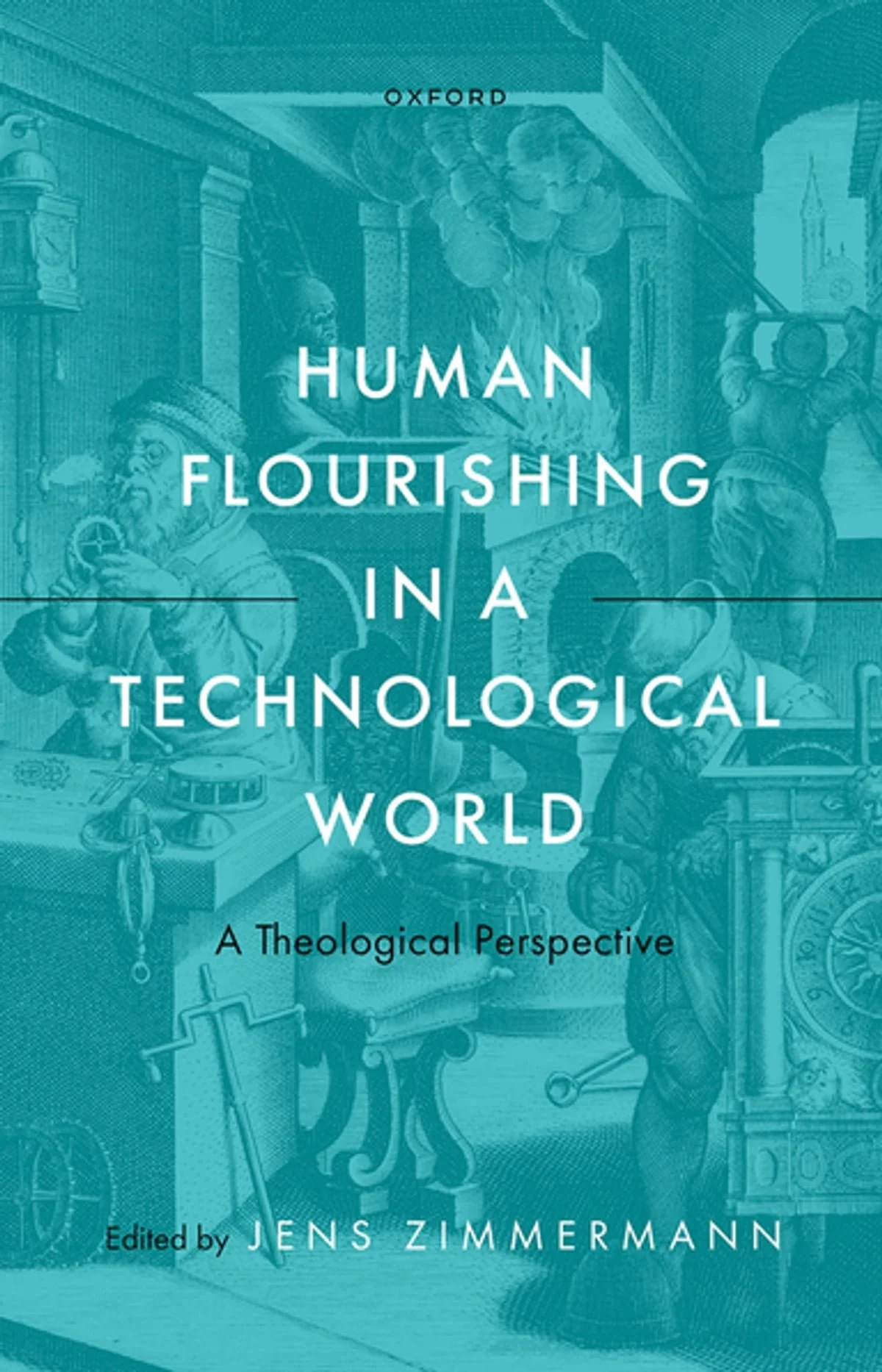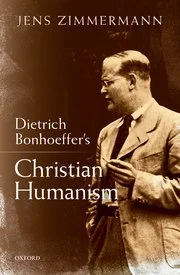Dietrich Bonhoeffer’s Christian Humanism provides a comprehensive introduction to Dietrich Bonhoeffer’s theology based on all of his published works and letters. Well-known Bonhoeffer scholar, Jens Zimmermann presents Bonhoeffer’s theological ethos as a Christian humanism— that is, an understanding of the gospel rooted in apostolic and patristic writers who believed God to have renewed humanity in the incarnation. The essence of Bonhoeffer’s Christianity that unifies and motivates his theological writing, his preaching, and his political convictions, including his opposition to the Nazi regime, is the conviction that Christianity as participation in the new humanity established by Christ is all about becoming fully human by becoming Christlike.
Read moreDietrich Bonhoeffer's Christian Humanism
Dietrich Bonhoeffer’s Christian Humanism provides a comprehensive introduction to Dietrich Bonhoeffer’s theology based on all of his published works and letters. Well-known Bonhoeffer scholar, Jens Zimmermann presents Bonhoeffer’s theological ethos as a Christian humanism— that is, an understanding of the gospel rooted in apostolic and patristic writers who believed God to have renewed humanity in the incarnation. The essence of Bonhoeffer’s Christianity that unifies and motivates his theological writing, his preaching, and his political convictions, including his opposition to the Nazi regime, is the conviction that Christianity as participation in the new humanity established by Christ is all about becoming fully human by becoming Christlike.
Read moreActs of Interpretation: Scripture, Theology, and Culture
This book features essays by biblical scholars and theologians offering broad reflections on key interpretive issues, rich readings of challenging biblical texts, and interaction with the Christian exegetical tradition from Melito of Sardis to Dietrich Bonhoeffer.
The contributors to this volume are leading figures in the theological interpretation of Scripture. Mindful of the Bible’s role in relation to God’s purposes, people, and world, these essays together offer “acts of interpretation” that aim to advance the faithful and fruitful correlation of Scripture, theology, and culture.
Read moreSources of the Christian Self: A Cultural History of Christian Identity
Using Charles Taylor’s magisterial Sources of the Self: The Making of the Modern Identity as a springboard, this interdisciplinary book explores lived Christian identity through the ages.
Beginning with such Old Testament figures as Abraham, Moses, and David and moving through the New Testament, the early church, the Middle Ages, and onward, the forty-two biographical chapters in Sources of the Christian Self illustrate how believers historically have defined their selfhood based on their relation to God/Jesus.
Among the many historical subjects are Justin Martyr, Origen, Augustine, Aquinas, Julian of Norwich, Dante, John Calvin, Teresa of Ávila, John Bunyan, Jonathan Edwards, Christina Rossetti, Blaise Pascal, Søren Kierkegaard, C. S. Lewis, and Flannery O’Connor—all of whom boldly lived out their Christian identities in their varied cultural contexts. In showing how Christian identity has evolved over time, Sources of the Christian Self offers deep insight into our own Christian selves today.
Read moreHermeneutics: A Very Short Introduction
Hermeneutics is the branch of knowledge that deals with interpretation, a behaviour that is intrinsic to our daily lives. As humans, we decipher the meaning of newspaper articles, books, legal matters, religious texts, political speeches, emails, and even dinner conversations every day . But how is knowledge mediated through these forms? What constitutes the process of interpretation? And how do we draw meaning from the world around us so that we might understand our position in it?
In this Very Short Introduction Jens Zimmerman traces the history of hermeneutic theory, setting out its key elements, and demonstrating how they can be applied to a broad range of disciplines: theology; literature; law; and natural and social sciences. Demonstrating the longstanding and wide-ranging necessity of interpretation, Zimmerman reveals its significance in our current social and political landscape.
Read moreRecovering Theological Hermeneutics: An Incarnational–Trinitarian Theory of Interpretation
This book is a careful, historical demonstration of the way in which hermeneutics was secularized yet continues to borrow on the capital of Christian theology. By exposing the problems inherent in secular hermeneutics and correcting the histories of philosophical hermeneutics on record, Zimmerman points a way forward beyond secular hermeneutics. This is a bold project that should be read not only by theologians but, more especially, by those philosophers working in the wake of Heidegger, Gadamer, Derrida, and Levinas. This book is an excellent addition to any course in philosophical hermeneutics.
— James K. A. Smith, author of The Fall of Interpretation
Incarnational Humanism: A Philosophy of Culture for the Church in the World
2013 CCED Book Prize winner! Having left its Christian roots behind, the West faces a moral, spiritual and intellectual crisis. It has little left to maintain its legacy of reason, freedom, human dignity and democracy. Far from capitulating, Jens Zimmermann believes the church has an opportunity to speak a surprising word into this postmodern situation grounded in the Incarnation itself that is proclaimed in Christian preaching and eucharistic celebration. To do so requires that we retrieve an ancient Christian humanism for our time. Only this will acknowledge and answer the general demand for a common humanity beyond religious, denominational and secular divides. Incarnational Humanism thus points the way forward by pointing backward. Rather than resorting to theological novelty, Zimmermann draws on the rich resources found in Scripture and in its theological interpreters ranging from Irenaeus and Augustine to de Lubac and Bonhoeffer. Zimmermann masterfully draws his comprehensive study together by proposing a distinctly evangelical philosophy of culture. That philosophy grasps the link between the new humanity inaugurated by Christ and all of humanity. In this way he holds up a picture of the public ministry of the church as a witness to the world's reconciliation to God.
“A timely and insightful analysis of how human beings, in the course of several centuries, have come to dominate a world and yet have lost their sense of what it means to be human. Jens Zimmermann demonstrates with depth and clarity the way that our common humanity was recovered in the incarnation and is communicated to us and to the world in the eucharist. This is truly a book for our times.”
“The book is an invaluable guide through the way that traditional Christian understandings of human beings and humanism have been engaged by critics through the centuries since the foundation of the Church.”
“Despite wading through deep waters of theology and philosophy, the author’s nimble prose makes this book readable and suitable for both advanced undergraduates and graduate students in theology. I would suggest it for inclusion in an introductory course on historical theology, and classes on Christianity and culture or philosophy and theology.”
Humanism and Religion: A Call for the Renewal of Western Culture
The question of who 'we' are and what vision of humanity 'we' assume in Western culture lies at the heart of hotly debated questions on the role of religion in education, politics, and culture in general. The need for recovering a greater purpose for social practices is indicated, for example, by the rapidly increasing number of publications on the demise of higher education, lamenting the fragmentation of knowledge and university culture's surrender to market-driven pragmatism. The West's cultural rootlessness and lack of cultural identity are also revealed by the failure of multiculturalism to integrate religiously vibrant immigrant cultures. A main cause of the West's cultural malaise is the long-standing separation of reason and faith. Jens Zimmermann suggests that the West can rearticulate its identity and renew its cultural purpose by recovering the humanistic ethos that originally shaped Western culture. In tracing the religious roots of humanism from patristic theology, through the Renaissance into modern philosophy, we find that humanism was originally based on the correlation of reason and faith. In this book, the author combines humanism, religion, and hermeneutic philosophy to re-imagine humanism for our current cultural and intellectual climate. The hope of this recovery is for humanism to become what Charles Taylor has called a 'social imaginary', an internalized vision of what it means to be human. This vision will encourage, once again, the correlation of reason and faith in order to overcome current cultural impasses, such as those posed, for example, by religious and secularist fundamentalisms.
“The critical retrieval of religious, theological and specifically Christian humanism, which has been gathering momentum during the past decade, has received a major boost with the publication of these two fine studies by Jens Zimmermann ... Each volume can stand on its own, but they overlap and complement each other in addressing the cultural crisis that faces Western society with secularism in confusion and religious fundamentalism rampant ”









